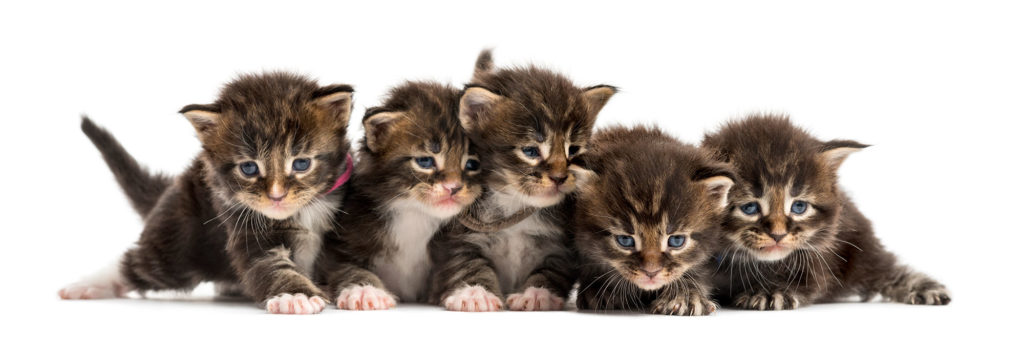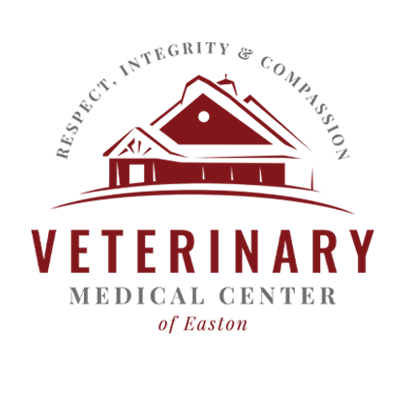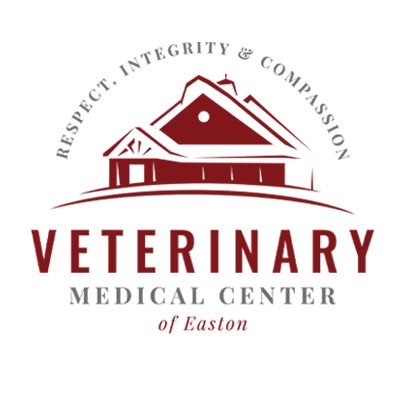We believe a healthy cat is a happy cat! We recommend that all cats undergo a complete wellness exam at least
ONCE A YEAR
Annual wellness exams are the key to providing a long and healthy life for your cat.
At the Veterinary Medical Center, there are several important components to wellness care for your cat:
• Annual (or bi-annual) wellness exams
• Vaccinations
• Comprehensive Annual Labwork
• Parasite prevention and control
• Exercise, nutrition and diet
• Dental care
• Environment enrichment
Regular wellness care allows our veterinarians to partner with you to develop an individualized wellness care program and comprehensive health profile for your cat. This health profile aids us in future treatment and helps us detect potential serious health problems before they are apparent to a cat’s family. Early identification of health issues enables us to begin early treatment, often before they develop into more serious conditions that are difficult to treat.

COMMON FELINE CARE FAQs
What should i Expect at my Cat’s Wellness Exam for Preventive Health Care?
• A thorough physical exam (eyes, teeth, lungs, abdomen, heart, weight, joints, muscles, lumps/bumps, etc.)
• Behavioral questions (water consumption, diet, energy, elimination, litter box, etc.), which often reveal developing veterinary issues
• Vaccine updates
• Comprehensive Annual Labwork (including blood profile tests, ova and parasite screening and urinalysis)
• Other tests as indicated (such as feline leukemia or feline FIV)
Learn more about what to expect during your pet’s exam from AAHA.
Be sure to mention any observations or changes in your pet’s habits or behavior. No one knows your pet like you do, and your observations may serve to inform our assessment. Your input also may help to detect a developing condition, treatable with the least invasive or less costly procedures.
why is Year-Round Parasite Prevention Vital to my Pet and my Family’s Health?
Flea, tick, worm, and other parasite prevention are important not only to your pet’s health and comfort, but also your family’s health as well. Parasites from pets can transmit diseases to humans, particularly children, since they may eat grass or dirt, allow pets to kiss them, and are unlikely to practice proper hand washing. Some parasitic canine diseases have more serious effects in humans than they do for dogs, as humans are an abnormal host for them. Pets and Parasites provides information on diseases you can get from your pet, many of which are avoidable by preventive measures. Also keep in mind that given the prevalence of deer and other wildlife in our area, tick prevention is a year-round pursuit.
how do i Buy Safe, Authentic Pet Medications?
When you buy tick, flea, and parasite control medications, be sure you are purchasing authentic FDA/EPA-approved pet medications. Purchase medications from veterinarians who ensure these pet medications are stored properly—at the right temperatures and under the right conditions—so effectiveness is guaranteed. We recommend the following medications:
• Frontline — Offers flea and tick prevention
• Heartgard — Guards your pets against heartworms, roundworms, hookworms, and whipworms.
• Revolution — Developed for both heartworm and flea and other harmful parasite prevention.
In addition to using pet medications, we also recommend good preventive measures to avoid exposing pets to ticks and fleas. Avoid tick-infested areas, inspect your pet daily for ticks and evidence of fleas, and launder bedding frequently. Remove any ticks you find immediately.
why is Diet, Weight, and Safety important?
We recommend you provide your pet with fresh water and a standard high-quality diet, or a veterinary formula, if prescribed. Measure the food you provide and serve it at set times to avoid obesity.
Be sure to keep poisonous and hazardous items away from your pets. Pet proof your home. Two common poisons that do not immediately come to mind are chewing gum and medications. Many everyday medications even in small doses are lethal to pets. Sugar-free chewing gum containing xylitol is also highly toxic. What is the most poisonous houseplant for pets? It’s lilies, not poinsettias as many believe.
what items should i bring with me to ensure the best possible experience?
• Your cat in a closed carrier. One that opens from the top is best.
• A fresh stool sample (ideally less than 12 hours old)
• A fresh urine sample (ideally less than 12 hours old)
• Questions you have for us regarding your cat’s health
If this is your first visit to our hospital, any previous veterinary records pertaining to your cat need to be submitted to our hospital at least 24 hours in advance of their first appointment.
WHY IS URINE TESTING IMPORTANT?
URINE HELPS COMPLETE THE PICTURE OF HEALTH
For information about how to collect a fecal or urine sample click here.



